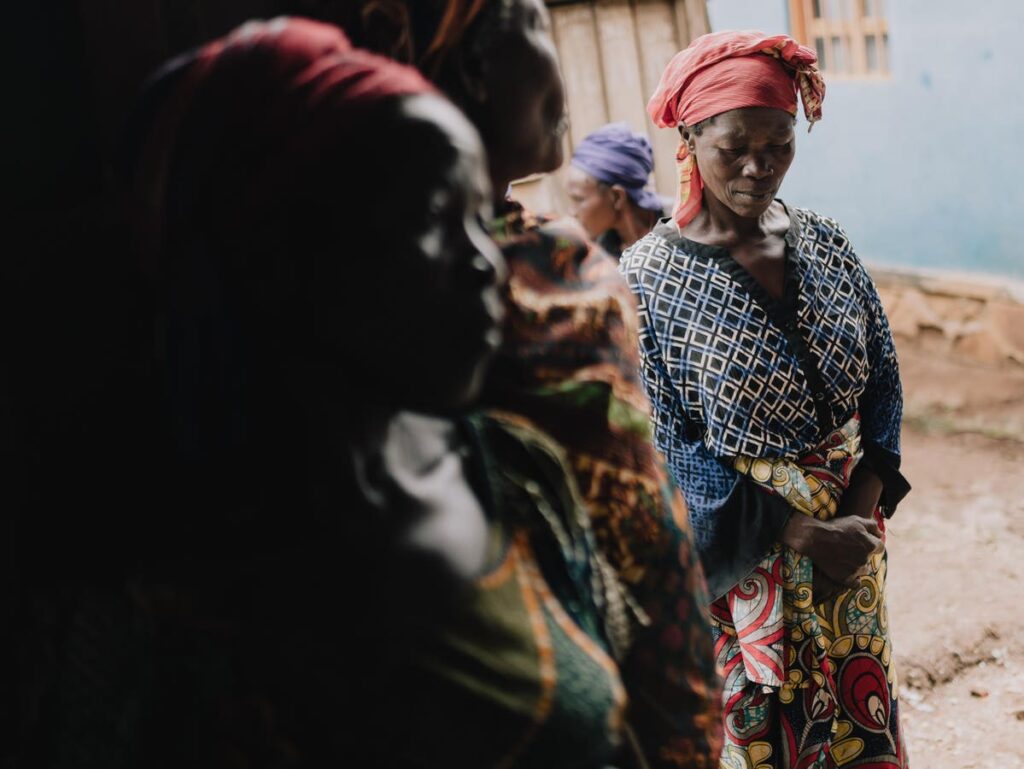Displaced community members who have fled the M23 conflict leave a Doctors Without Borders … More
Getty ImagesIn January 2025, the situation in the Democratic Republic of the Congo (DRC) escalated with fighting between Government forces and the Rwandan-backed M23 armed group intensifying. M23 rebels seized Goma, the provincial capital of North Kivu, and started closing in on the city of Bukavu, the capital of South Kivu province. This has resulted in hundreds of thousands being forced to flee and seek safety in internally displaced persons (IDPs) camps. In February, M23 captured Bukavu.
The hostilities are unfolding in a mineral-rich region that has been volatile for decades amid a proliferation of armed groups. UN reports that the intensifying hostilities have been sending shockwaves through the communities, with IDP camps emptying as people flee the violence. Medical services are overwhelmed by the number of those injured, including civilians.
In April 2025, the UN reported that the use of sexual violence in the region has reached staggering proportions. The UN Children’s Fund (UNICEF) reported thousands of new cases in just two months – evidence that it’s being used as a systemic weapon of war and a deliberate terror tactic. James Elder, UNICEF spokesperson, explained the impact of the crime on children: “children could account for up to 45% of the nearly 10,000 cases of rape and sexual violence documented in January and February, amid heightened tensions between Rwanda-backed M23 rebels and Government forces across the mineral-rich region, where dozens of armed groups are active. This translates to a horrifying reality – a child was raped every half an hour.” These numbers are said to be the tip of the iceberg, with stigma, fear, and insecurity meaning many cases go unreported.
UNICEF spokesperson further warned that the already dire situation is being exacerbated by a growing funding shortfall. Critical services for survivors – such as medical care, psychological support and legal assistance – are being severely impacted by funding cuts. If the funding gap is not filled, UNICEF estimates that 250,000 children will miss out on essential services related to gender-based violence and protection in armed conflict over the next 12 weeks alone. In response, UNICEF is calling for additional prevention efforts, survivor-centered services, and safe, accessible ways for survivors to report abuse without fear.
The warnings from UNICEF add to the ever-growing number of concerning reports on the use of sexual violence coming from the DRC. As Rwandan-backed M23 rebels have been seizing control of key areas, reports of widespread use of sexual violence, particularly against women and girls, have been emerging. In the Goma area of North Kivu, around 500 cases of sexual violence were reported within one week following M23’s invasion, with more than 150 of the cases involving children. In January, during a prison break, at least 150 female prisoners were raped before the majority were subsequently burned alive. In March 2025, the UN indicated that 895 cases of rape were reported to humanitarian actors in the last two weeks of February alone – an average of more than 60 people being raped a day.
The use of sexual violence as a weapon of war in the DRC has a long history stemming from colonial occupation, and continues to this day. Despite some positive steps taken to address it, prevention continues to be a promise yet to be fulfilled. Some accountability measures help to show how justice could be achieved, however, they are but a drop in the ocean. Ongoing hostilities include the deliberate use of sexual violence, and also create conditions for such violence to be perpetrated with impunity.
As long as the DRC continues to be a stamping ground for militias, including M23, and other neighboring countries, instability will create the perfect conditions for atrocity crimes to be perpetrated. In such conditions, women and girls will always be at risk of sexual violence. This is the lived reality of women and girls, as manifested before our eyes, requiring urgent and comprehensive responses.
Read the full article here


